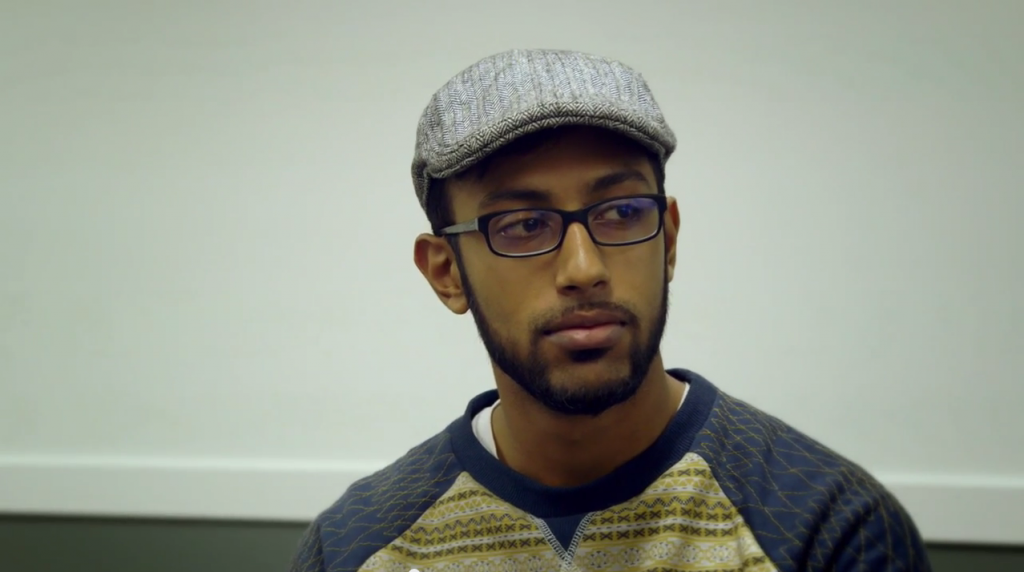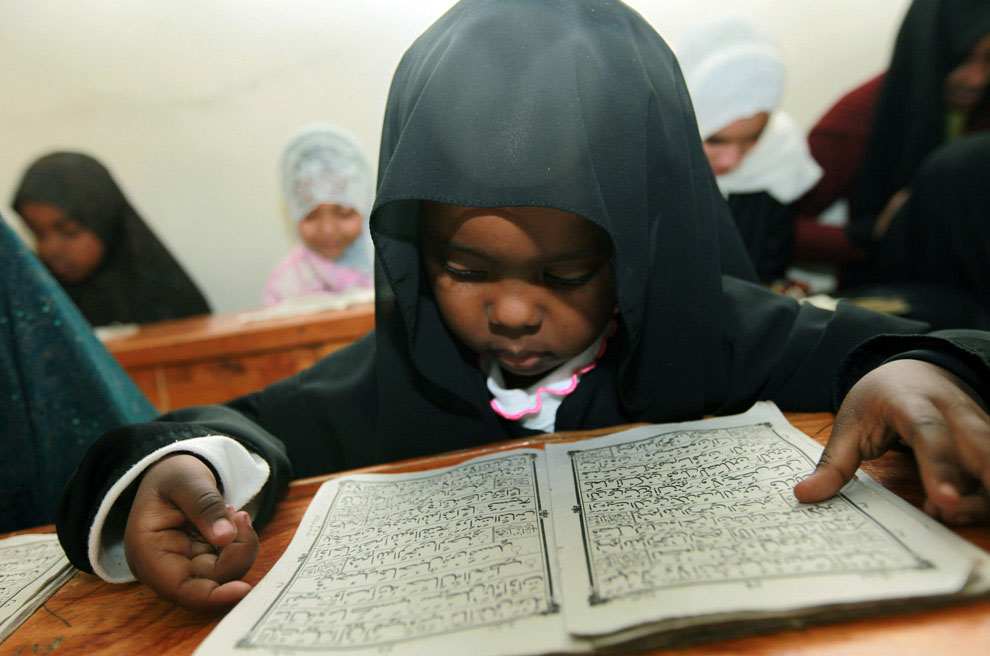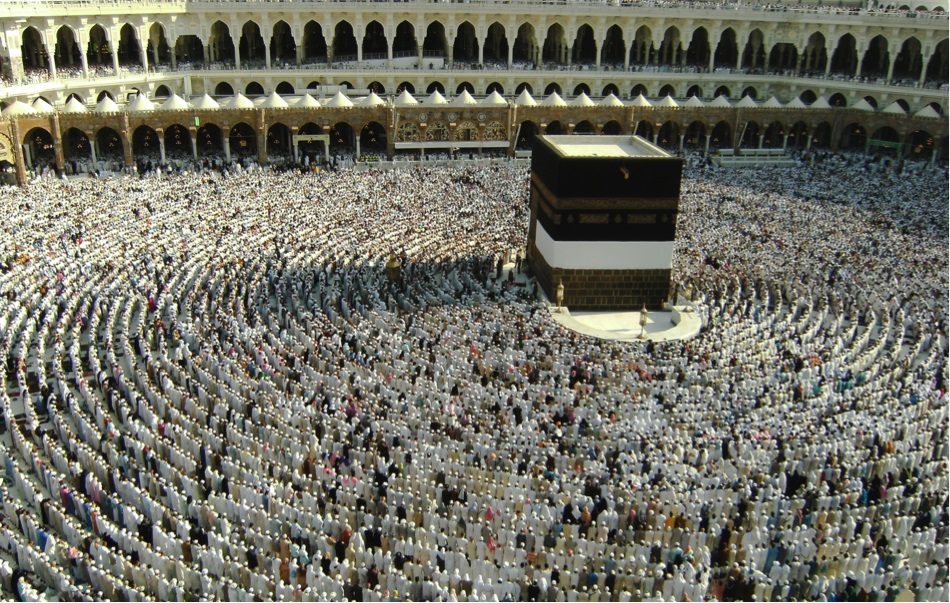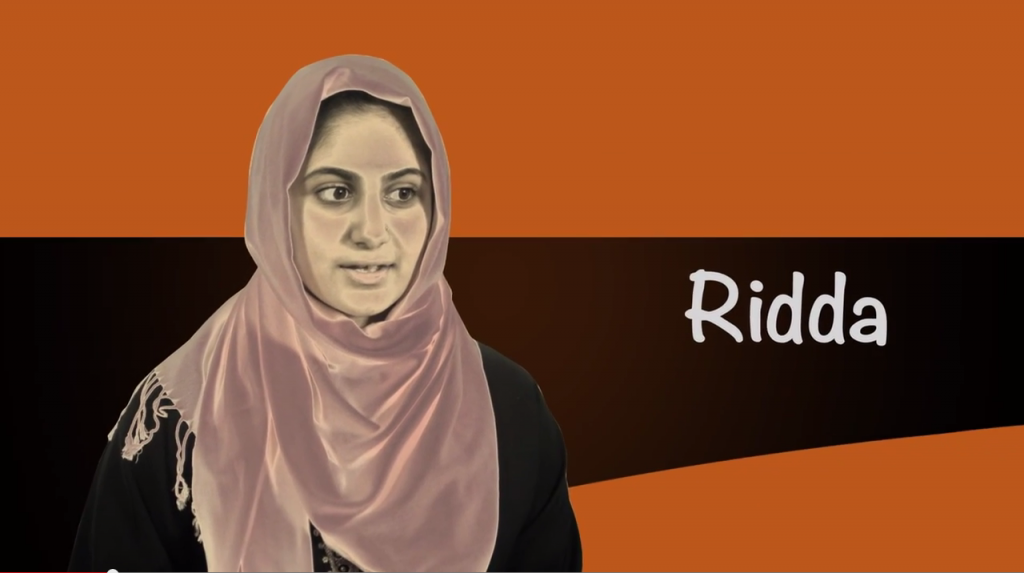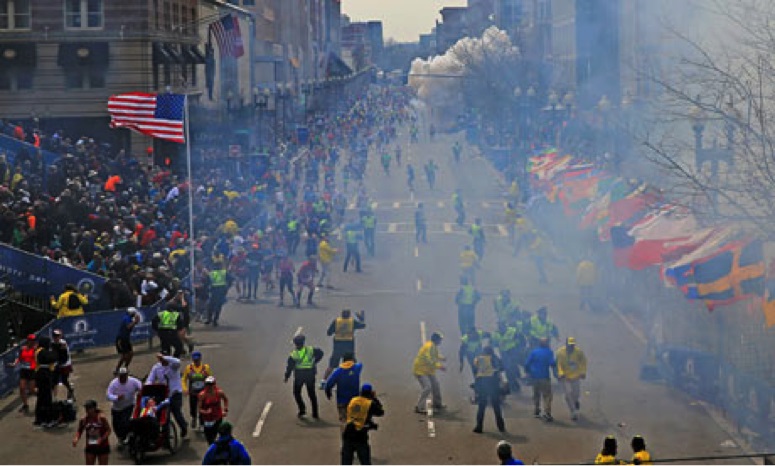Educator Tools

 Ask yourself:
Ask yourself:
- Was there a time in your life that you encountered someone new and you took on a closed view? Be as honest as you can when describing the event. Explain what you learned, and then share it with a partner.
- If you identify as a Muslim, have you experienced any prejudice or discrimination? If so, share your experience with your fellow students.
Since the new millennium, there has been increasing immigration from Muslim majority countries into Western Europe and North America. Given the unfamiliarity many Western people have with the religion of Islam and with Muslim neighbours, and because of the catastrophic events of 9/11, the Iraq War, and the brutality of ISIS, some people confess to not understanding, fearing, or even hating Islam and Muslims. The subjugation of women and girls, religious minorities, and gay people in the Islamic world is another source of negative perceptions of Islam.
 Definitions
Definitions
Islamophobia
Islamophobia is an extreme fear of and hostility toward Islam and Muslims. It often leads to hate speech and hate crimes, social and political discrimination. It can be used to rationalize policies such as mass surveillance, incarceration, and disenfranchisement, and can influence domestic and foreign policy.
Credit: Bridge Initiative
Islam
Islam is a monotheistic religion that is practiced by more than 1.8 billion people worldwide (there are 2.3 billion Christians in the world, by contrast). Followers of Islam are called Muslims. The two major sects, or denominations, of Islam are Sunni (87-90%) and Shia (10-13%). Some things that Islam shares in common with Judaism and Christianity include the belief in one God. The three religions also share recognition of prophets like Moses and Abraham. Together, Judaism, Christianity, and Islam are called the Abrahamic faiths, after the prophet Abraham. Islam also recognizes Jesus as a prophet and a sura (chapter) of the Koran (Muslim scripture) is named for Mary, the mother of Jesus.
Open or Closed Views on Islam
In 1996, The Runnymede Trust, an independent British research and social policy agency, established the Commission on British Muslims and Islamophobia. Early in 1997, the Commission, under the chairmanship of Professor Gordon Conway, issued a consultative document. The final report, Islamophobia: A Challenge for Us All, was launched in November 1997 by the British Home Secretary.
The report explained how Muslim people can be approached with either open or closed views, and closed views are the ones that are more associated with Islamophobia.
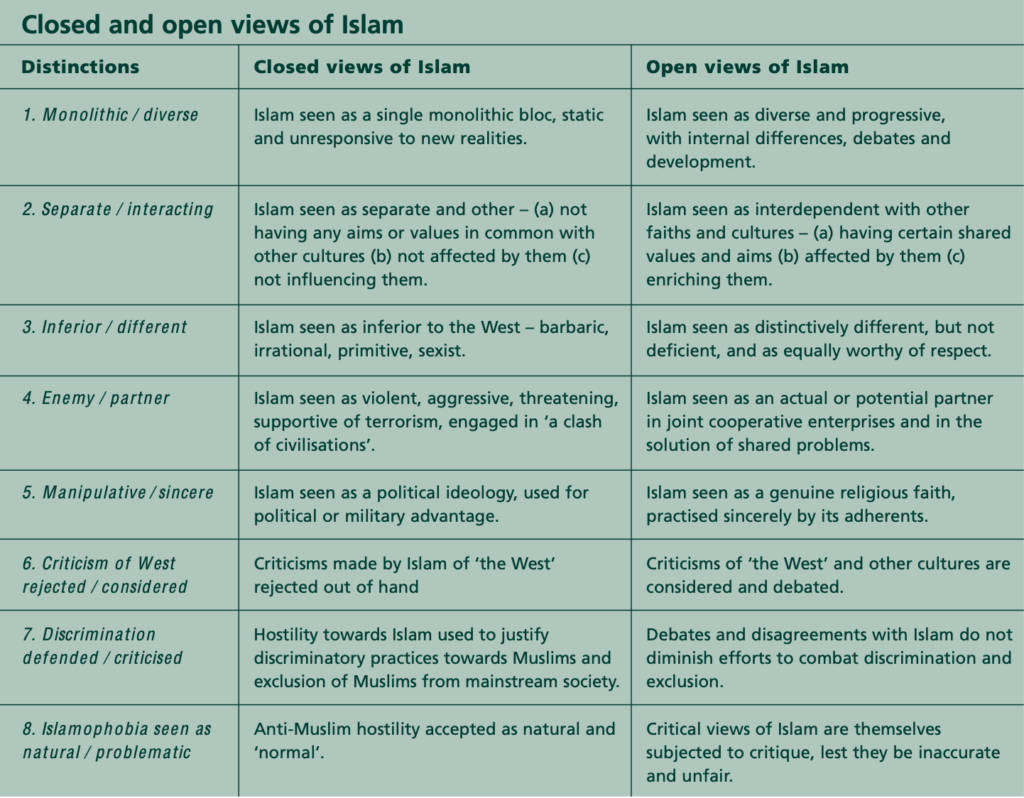
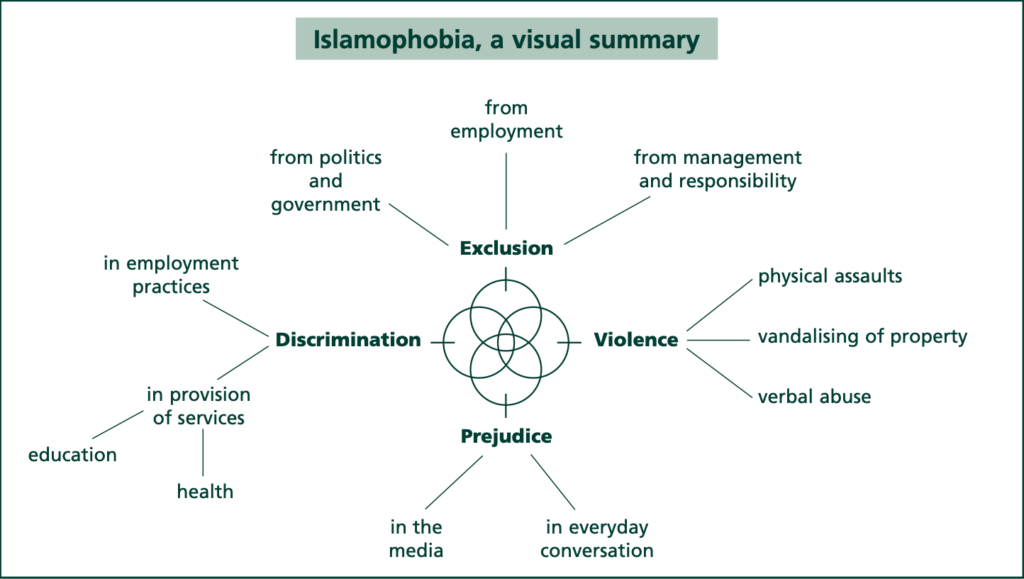
ACTION 1
Do
Seeing the Other
With a partner, create a list of eight open views of Islam and Muslims that contrast with the closed views above.
| 1 | |
| 2 | |
| 3 | |
| 4 | |
| 5 | |
| 6 | |
| 7 | |
| 8 |
Criticizing the Term
Some people have criticized the use of the term Islamophobia, claiming that terming critics of Islam as Islamophobic prevents honest discussion and criticisms of the religion. Others have criticized the term Islamophobia in that Muslims are more often the “target of hostility” than the religion itself, and hence a better term is Anti-Muslimism.
The Bridge Initiative at Georgetown University argues: “Islamophobia does not include the rational criticism of Islam. However, it is Islamophobic for criticism of Islam to be generated for the sole purpose of advocating social and political measures that discriminate against and violate the rights of Muslims.”
Five Pillars of Islam
- Testimony: a Muslim accepts that there is no God but God alone and that Muhammad is his prophet.
- Prayer: ritual prayer that all Muslims are required to recite five times a day.
- Alms giving: Muslims are required to give 1/40th (2.5%) of their annual income to the needy.
- Fasting: Muslims are required to fast (no eating or drinking) from sunrise to sunset during the holy month of Ramadan.
- Pilgrimage: Muslims who can physically and financially afford it are required to make the pilgrimage to Mecca at least once in their lifetime.
As of 2019, there were 1,148,213 Muslims in Canada or about 3.7% of the population, making them the second largest religion after Christianity. In the Greater Toronto Area (GTA), 7.7% of the population is Muslim, and in Greater Montreal, Muslims are 6% of the total population. A majority of the Muslims in Canada follow Sunni Islam, and a minority of them follow Shia Islam and Ahmadiyya Islam.
ACTION 2
Think
Understanding Islam and Muslim Life
What is your knowledge of Islam and Muslims? How many of the above facts about Islam did you already know? Share with a partner.
Canada promised to resettle 25,000 Syrian refugees by the end of 2015. As of 2021, Immigration, Refugees and Citizenship Canada says over 73,000 of them have settled in this country. What kinds of challenges have these Muslim refugees faced in their journey to become Canadian residents and citizens? Do some research on the internet to answer this question and begin with this Maclean’s article.
ACTION 3
iSearch
When The Media Reacts
Read the following article by University of California-Davis Professor Karima Bennoune, written in the wake of the Boston Marathon bombings on April 15, 2013. In the article, find and highlight as many unfamiliar words, phrases, and concepts as you can. Research online for their definitions or for more information.
Once you finish reading, role-play with a partner as Karima Bennoune being interviewed by a journalist for the article. Ask and answer at least three questions this way. Feel free to research online to help you determine both the questions and the potential answers.
The author makes a good point: it is crucial that we all recognize the difference between Islamic religion and violent Islamic terrorism that uses religion to recruit members and to operate politically.
40 Days after Boston Bombing: We Must Stop Radical Jihad
“We must stop trying to make excuses for the Tsarnaev brothers or jihad. It is wrong. Let’s support peaceful Muslims around world.”
By Karima Bennoune
In many Muslim societies, the 40th day after a death is a time to gather and grieve again with loved ones. So, in honor of this the 40th day after the atrocities in Boston, I find myself thinking again about the 264 injured people, some of whom are learning to live without their legs, and about the dead victims: 23-year-old Chinese graduate student Lingzi Lu, who had just passed her exams, friendly 29-year-old waitress Krystle Campbell, and eight year-old Martin Richard who famously carried a sign that said “No more hurting people. Peace.”
Bearing such losses in mind, I would ask anyone who wants to support the rights of people of Muslim heritage in the United States in the wake of the Boston bombings, please do not do so by explaining that jihadist terrorism is simply a response to US foreign policy, or a consequence of the alleged difficulties faced by Muslim youth in integrating into American culture, or the result of Russian bombing of Chechnya.
Many of us have criticisms of US foreign policy and that of other countries; integrating may indeed be challenging for those from immigrant backgrounds in many contexts; and Chechens did suffer through the intolerable flattening of their country by the Russian military between 1992 and 2009. (As far as I know the United States never bombed the province.) However, most Muslims, immigrants and Chechens have not become terrorists as a result. These things are no excuse for – or even explanation of – the choice to deliberately murder children and young people at a sporting event. Such a grave international crime has nothing to do with legitimate grievances and everything to do with extremist ideology and movements that indoctrinate and instrumentalize young people. We must defeat those movements which have killed so many civilians, especially in Muslim majority countries like Afghanistan, Algeria, Iraq, and Pakistan.
I have just wrapped up three years of interviewing hundreds of people of Muslim heritage working against fundamentalism and terrorism around the world, and I learned many lessons from them that are helpful today. For example, Cherifa Kheddar, president of Algeria’s Association of Victims of Islamist Terrorism, or Djazairouna, who wrote right after 15 April to say how terrible the Boston bombings were. She told me that:
“We cannot defeat terrorism by an anti-terrorist battle without doing the anti-fundamentalist battle.”
In other words, it is not just the violence of radical jihadis, but the underlying ideology of Islamism that we must confront. That ideology discriminates between Muslims and non-Muslims (as evidenced by Tamerlan Tsarnaev’s reported indignation that his Imam mentioned Martin Luther King, a non-Muslim, during a sermon), and between “good” and “bad” Muslims. It justifies egregious violence against women and civilians, or at least creates an environment conducive to them.
Of course, being an Islamist or a jihadist is not the same thing as being a devout Muslim, and it is unhelpful when the US media simply describes radicalization as becoming “more religious”. This process is rather the adoption of a dangerous political stance that deploys religion in the service of an extreme agenda. The best way then to take a pro-human rights stance in the face of recent events is to support those people of Muslim heritage who are risking their lives to denounce and defy these movements. Many have raised their voices around the world in places like Afghanistan, but have rarely been heard in the west.
Discrimination against Muslims in the wake of an atrocity like the Boston bombings is wrong and unhelpful, but so too is a politically correct response, which fosters justification and denial. A young Iranian-American scholar reported that at a recent conference at UC Berkeley on Islamophobia, she was bullied by older US academics for daring to raise the issue of Muslim fundamentalism, along with anti-racism, and, in the same week as the Boston bombings, was told that there was no such thing as what she called “the Muslim right.” We must face the reality of extremism.
Many people in Muslim contexts have spoken out against terror even while facing it themselves. I think of Diep Saeeda, a peace activist I met who organized rallies against Taliban violence in Pakistan, or against the blasphemy laws despite the threat that suicide bombers would take down the protestors. Or the Women’s Action Forum in Pakistan that regularly denounces terrorism in print. After a March 2013 attack on Shia residents of Karachi, they wrote:
“[o]nce again we share unspeakable horror at the carnage . . . Once again we express our condemnation and outrage. Once again we wonder how many more times we will do this before there is resolve to deal with religious militancy.”
I think of the Libyans who took to the streets of Benghazi in 2012 after the murder of US ambassador Chris Stevens. Or of Somali American activist Abdirizak Bihi who campaigned against Al Shabaab recruitment in the Somali-American community in Minneapolis, after his own teenage nephew’s recruitment and death at the hands of the militants. We have to support these people and listen to their voices.
In light of the national origin of the alleged Boston bombers, I have been thinking a lot about a wonderful Chechen journalist I interviewed in Moscow in December 2010. A devout Muslim, Said Bitsoev, then-deputy editor of Novye Izvestia – an independent newspaper – was terribly concerned about what such movements were doing to his home province. “There [a]re a lot of radical people who are really bad for Chechnya. They want to put the country back in the Dark Ages.”
Before the Chechen wars, most followed a spiritual Sufi Islam, in contrast to the harsh dogma of the extremists. Said himself loathed the radicals, their new restrictions on women, and new forms of violence. He especially hated the thousands of foreign jihadis who came to Chechnya during the second war. “They brought a lot of fear. I was not able to sleep without a gun under my pillow.” These foreign fighters left behind a new breed of Chechen “radical-thinking Islamists” in Bitsoev’s view. “The worst thing,” Said tells me, is that they were “hunting for those Muslims who were representatives of tolerant Islam, and killed these people.” He gives the example of Umar Idrissov, 80, a mufti from Urus-Martan, southwest of Grozny, who was assassinated in 2000 by the Wahhabi group “Wolves of Islam”. In fact, across the Caucasus liberal Muslim clergy have been regularly targeted in recent years by extremists.
Said Bitsoev was all too aware that Chechens like those murdered clerics, or like him, are relatively inconspicuous internationally. “Radicals are interesting for the public because they are loud. We normal people are boring,” he said. We must support the daily struggles of people like Said, who are too often invisible, against those who twist the religion of their birth into a totalitarian terror manifesto.
Meet Raheel Raza
Raheel Raza is a fearless activist for human rights, a courageous supporter of women’s issues, and a bridge builder between communities. Raheel is a Canadian citizen and a Muslim who believes in the values of free speech, democracy, gender equality, and pluralism.
Raheel was born in Pakistan and migrated to Canada in 1988. Her journey has led to publications in major newspapers in Canada and appearances on International media outlets BBC and CBC.
She is president of Muslims Facing Tomorrow.
Every effort has been made to gain permission from copyright holders to reproduce borrowed material. The publishers apologize for any errors and will be pleased to rectify them in subsequent reprints and website programming


